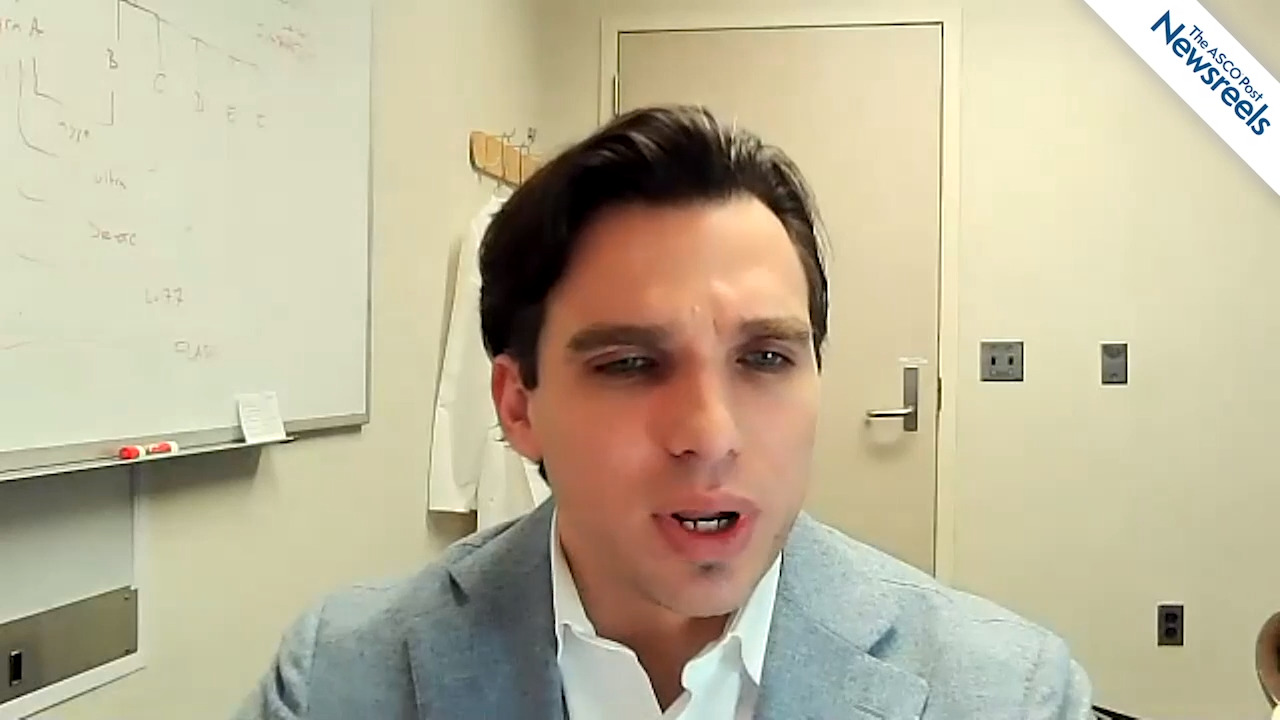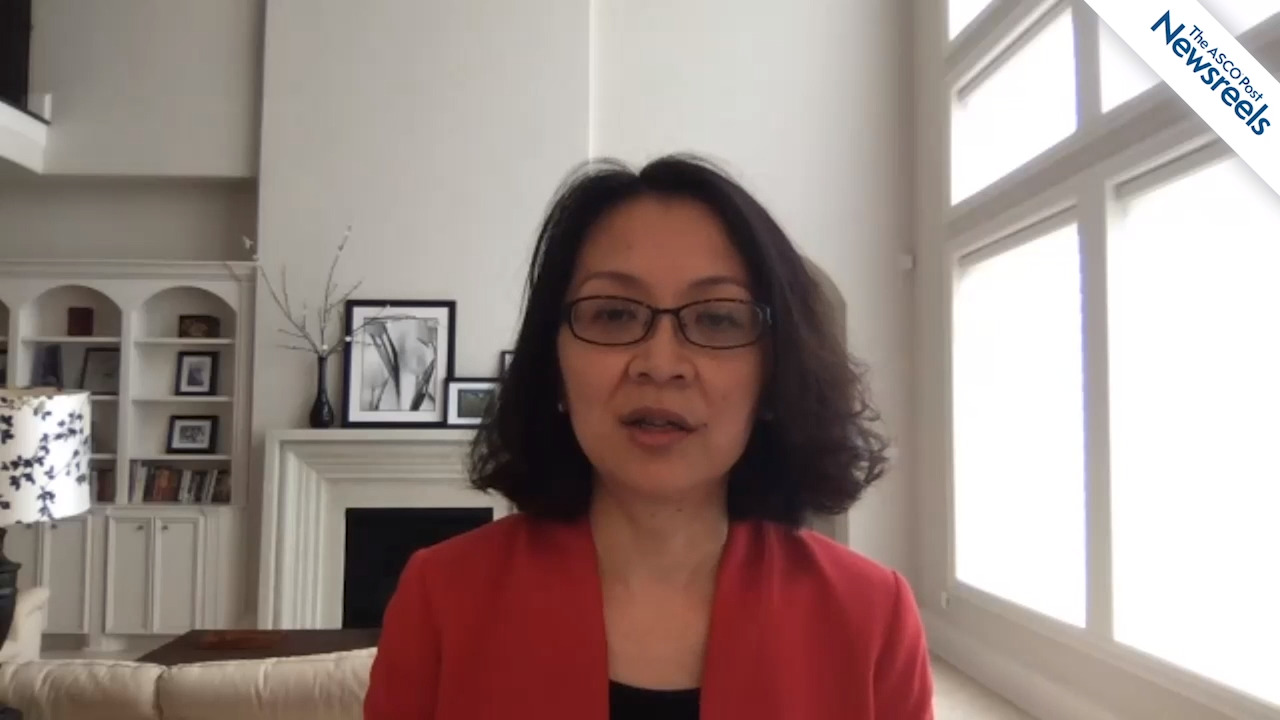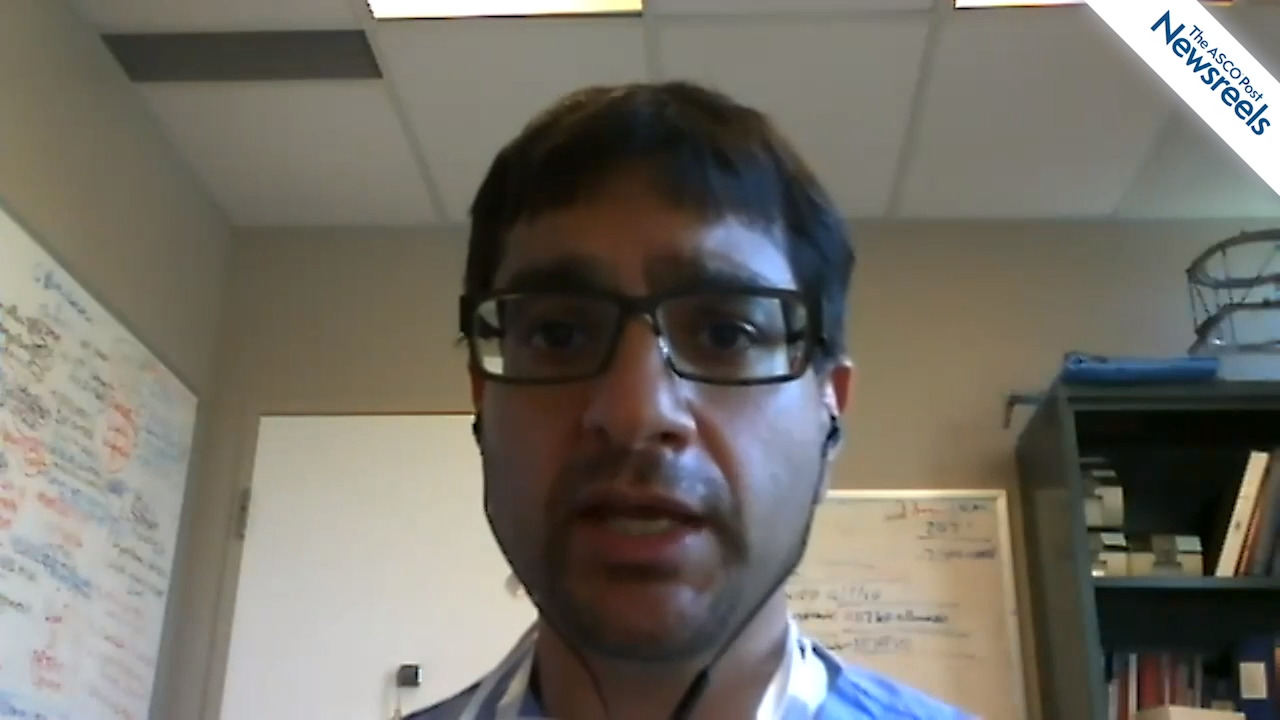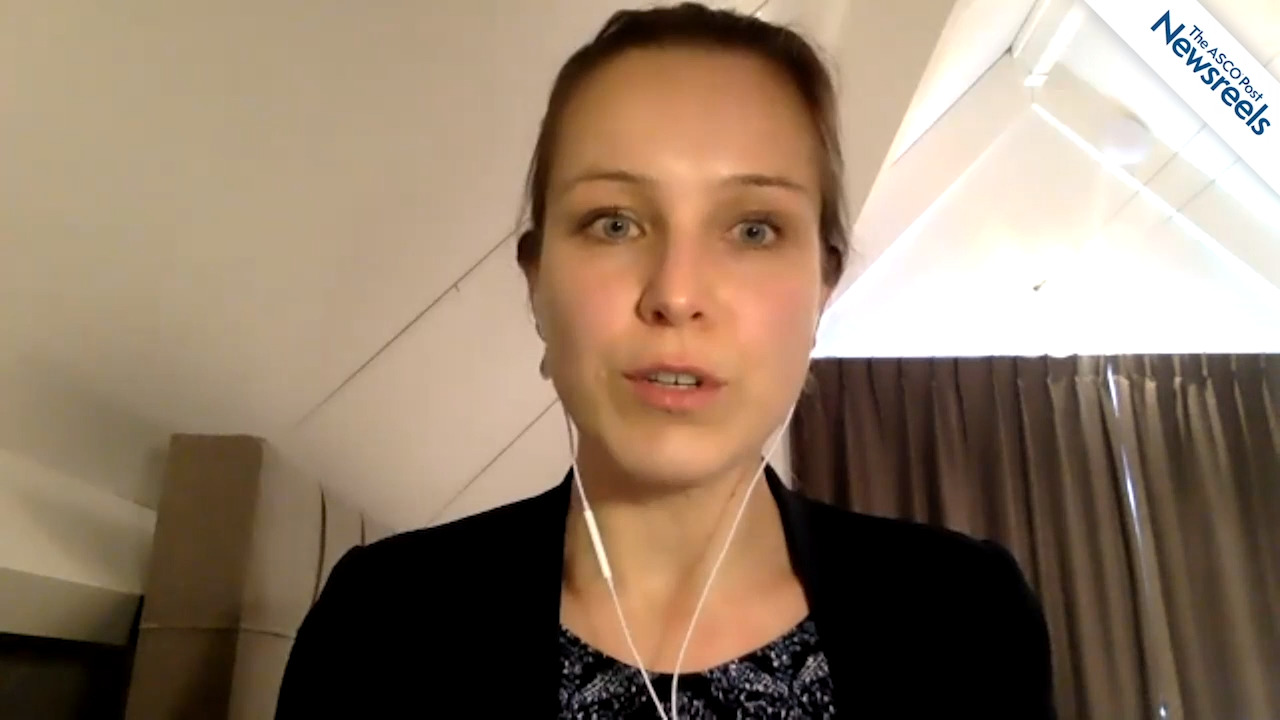Vinai Gondi, MD, on Glioblastoma: Dose Intensification, IMRT, Standard Radiotherapy, and Temozolomide
2020 ASTRO Annual Meeting
Vinai Gondi, MD, of Northwestern Medicine Cancer Center and Northwestern Medicine Proton Center, discusses the preliminary results of an NRG Oncology study of radiotherapy dose intensification using intensity-modulated radiotherapy vs standard-dose radiotherapy with temozolomide in patients with newly diagnosed glioblastoma (Abstract 42).
The ASCO Post Staff
Daniel E. Spratt, MD, of the University of Michigan Rogel Cancer Center, discusses phase III results of the HERO trial, which suggested benefits of the oral medication relugolix: a substantially faster time to castration with longer duration, fewer cardiac events, and a faster return to normal testosterone levels compared with leuroplide (Abstract 35).
The ASCO Post Staff
Jing Li, MD, PhD, of The University of Texas MD Anderson Cancer Center, discusses phase III results showing the use of stereotactic radiosurgery in patients with 4 to 15 brain metastases, compared with whole-brain radiotherapy, may better preserve cognitive function and minimize the interruption of systemic therapy without compromising overall survival (Abstract 41).
The ASCO Post Staff
Arjun Sahgal, MD, of the Sunnybrook Health Sciences Centre, discusses results of the first phase III trial to suggest that dose escalation with stereotactic body radiotherapy may be superior to conventional palliative radiotherapy in improving pain outcomes for patients with spinal bone metastases (Abstract LBA2).
The ASCO Post Staff
Justin Oh, MD, of the University of British Columbia, discusses results from the ASCENDE-RT trial, which compared a low-dose–rate brachytherapy boost to a dose-escalated external-beam boost for patients with high- and intermediate-risk prostate cancers (Abstract 127).
The ASCO Post Staff
Linda G.W. Kerkmeijer, MD, PhD, of the University Medical Center Utrecht and Radboud University Medical Center, discusses results from the phase III FLAME trial, which explored the question of whether biochemical disease–free survival can be improved by adding a focal boost to the intraprostatic lesion in whole-gland external-beam radiotherapy for patients with intermediate- and high-risk prostate cancers (Abstract 126).





